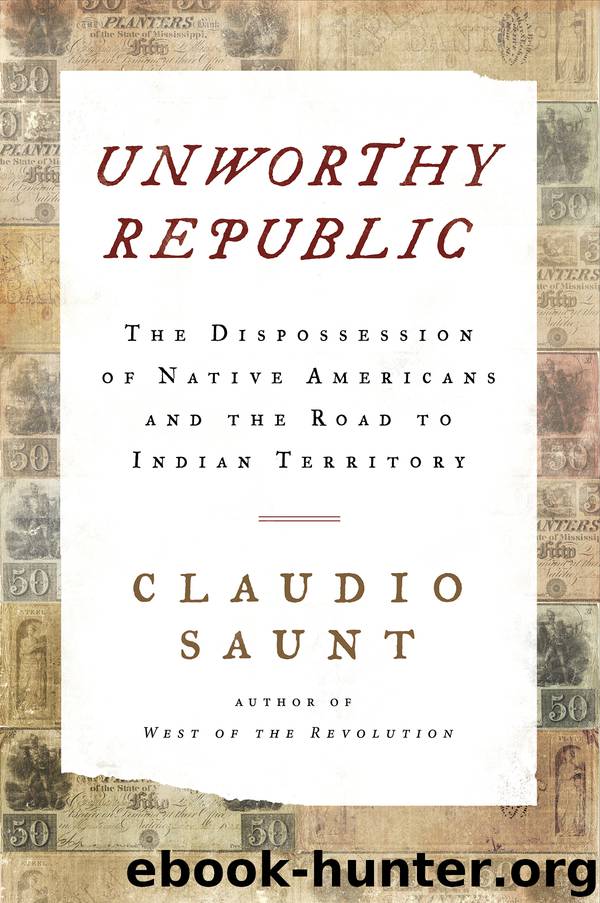

As Saunt persuasively observes, we have yet to reckon with them today. And after it unfolded, the consequences lingered. It is also a story of how-despite all the money that white people stood to make-expulsion almost didn’t happen, thanks to a storm of protest from indigenous people and the white allies they activated. The result is a haunting story of racialized cruelty and greed, which came to define a pivotal period in U.S. But Saunt’s greatest contribution is to weld the narrative of deportation to new histories of capitalism that emphasize slavery’s centrality to national economic development: He follows the money, exhaustively researching company correspondence and government records to show how bankers in Boston and London financed the dirty work of dispossession in collaboration with southern speculators. His third, that it was administratively “unprecedented” in American history, invites debate about longer histories of dispossession.


Two of his principal arguments-that mass expulsion wasn’t inevitable and that it was a “turning point for indigenous peoples and for the United States”-are largely accepted among scholars. In Unworthy Republic, Claudio Saunt, a historian at the University of Georgia, offers a damning synthesis of the federal betrayals, mass deportations, and exterminatory violence that defined the 1830s. “They are on an outside of us,” a Senate committee exulted, “and in a place which will ever remain an outside.” More than 25,000 Native people died. Over the next decade, the United States repeated the pattern from Ohio to Alabama, banishing some 80,000 women, men, and children beyond the Mississippi River, to the western fringe of an unabashed American empire.

Survivors called their new home “the Land of Death.”Įxpulsion was a windfall for the white Mississippians who raced into Choctaw houses, harvesting the crops and supping on the spoils. Abandoning the schools, spinning wheels, and carpentry shops they had built throughout what is now Mississippi, the Choctaw embarked on an arduous journey to Oklahoma, their eviction “an experiment on human life,” as an outraged Massachusetts congressman warned. Now they were being forced west anyway, the first indigenous nation to be expelled from its ancestral homelands under President Jackson’s 1830 Indian Removal Act. official had ensured their territory in perpetuity. The Choctaw had fought alongside Andrew Jackson in the War of 1812, and a U.S. T hey held back tears as they left, touching the autumn leaves one last time.


 0 kommentar(er)
0 kommentar(er)
